group from research - School de Enfermería
Innovation for person-centred care
This group of research is made up of researchers from academia and health care who seek to generate new knowledge, to promote a people-centered care in the health care system and in society.

Objective
Generate, in the framework of person-centered care, a nursing disciplinaryknowledge that illuminates and/or transfers to the nursing professional internship .

Researchers
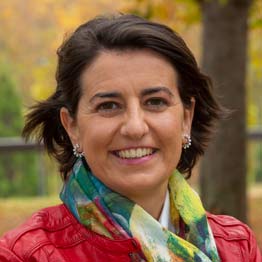
Ana Carvajal
Leader Group
acarvajal@unav.es

Ana Choperena Armendáriz
Senior Researcher
achoperena@unav.es
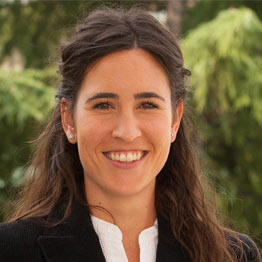
Begoña Errasti Ibarrondo
Senior Researcher
meibarrondo@unav.es
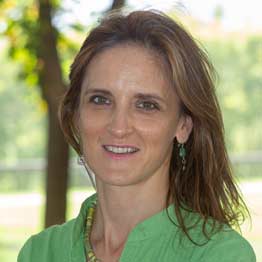
Hildegart González Luis
Senior Researcher
hgonzal@unav.es

Virginia La Rosa Salas
Post-Doctoral Researcher
vlarsal@unav.es
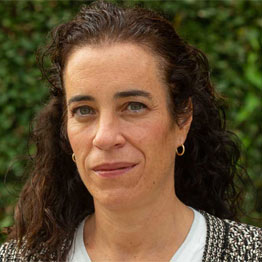
Marta Lizarbe Chocarro
Post-Doctoral Researcher
mlizarbe@unav.es

Jesús Martín Martín
Senior Researcher
jmartinm@unav.es

Maddi Olano Lizarraga
Senior Researcher
molizarraga@unav.es

Cristina Oroviogoicoechea Ortega
Senior Researcher
corovio@unav.es
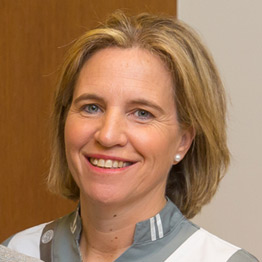
Beatriz Paloma Mora
Nursing Manager
bepaloma@unav.es
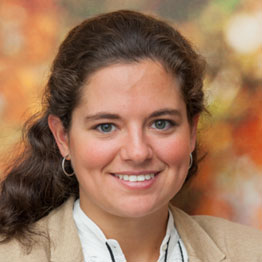
Miriam Pereira Sánchez
Post-Doctoral Researcher
mpereiras@unav.es

Mercedes Pérez Diez del Corral
Post-Doctoral Researcher
mperes@unav.es

Carmen Rumeu Casares
Nursing Manager
crumeu@unav.es

Mónica Vázquez Calatayud
Nursing Manager
mvazca@unav.es

Amparo Zaragoza Salcedo
Post-Doctoral Researcher
azaragoza@unav.es
Doctoral students
- Isabel Díaz Suárez
- Marta Domingo Oslé
- Nerea Elizondo Rodríguez
- Elena Larrondo
- Yeshika Merino Perez
- Maite Mendívil

Areas
goal:
The area has as its main goal the development of strategies to implement person/family centered care with chronic and advanced processes.
Implications:
- Improve the health experiences (holistic well-being) of the cared-for person and his/her family.
- promote empowerment of the chronic patient (active participation in decision making).
Lines:
Strategies to implement person-centered care along 3 lines:
→ Line 1. The person/family with chronic heart failure.
Researchers: Maddi Olano, Jesús Martín, Amparo Zaragoza, Mónica Vázquez.
→ Line 2. The person/family in palliative care.
Researchers: Jesús Martín, Ana Carvajal, Begoña Errasti, Maddi Olano and Elena Larrondo.
→ Line 3. The person/family cancer survivor.
Researchers: Virginia La Rosa, Nerea Elizondo, Marta Domingo.
goal:
The area has as its main goal to know which are the elements that constitute (knowledge of the patient, respect, intentional presence) and influence (environment) the interpersonal relationship between the nurse and the cared person/family.
Implications:
- To know in depth the constituent elements of the relationship in order to guide encounters toward optimal health outcomes for the patient/family.
- To favor the relationship between the nurse-person/family cared for, enabling an environment that promotes it.
Lines:
→ Line 1: The interpersonal relationship between the nurse and the person with advanced and terminal illness.
researcher: Begoña Errasti
→ Line 2: The knowledge of the cared person/family from the health experience and its meaning.
Researchers: Amparo Zaragoza, Cristina Oroviogoicoechea, Elena Osácar.
→ Line 3: The impact of the environment of the professional internship on the nurse-person/cared-for family relationship.
Researchers: Miriam Pereira, Amparo Zaragoza.
→ Line 4: Shared decision making between the nurse-person/family cared for.
researcher: María José Hernández Leal.
→ Line 5: Respect in the framework of the nurse-person/family cared relationship.
researcher: Mercedes Pérez.
goal:
development o adaptation of instruments that help to assess aspects related to person-centered care from the perspective of the patient, family, professional or student.
Implications:
- Assess, measure and promote person-centered care.
- Provide assessment indicators of person-centered care across 5 lines:
Lines:
→ Line 1: The relationship competencies guiding tool (RCGT).
Researchers: Ana Choperena, Mónica Vázquez, Virginia La Rosa.
→ Line 2: Person-centred Practice Inventory (Spanish version).
Researchers: Ana Carvajal, Ana Choperena, Begoña Errasti, Virginia La Rosa, Mónica Vázquez, Marta Lizarbe.
→ Line 3: UNAV-Experience of Living with Chronic Heart Failure Scale (UNAV-CHF Experience Scale).
Researchers: Maddi Olano, Jesús Martín, Amparo Zaragoza.
→ Line 4: Patients' Perceptions of Feeling Known by their Nurses (PPFKNS; Spanish version).
Researchers: Elena Osácar, Amparo Zaragoza, Cristina Oroviogoicoechea.
→ Line 5: Rubrics for the assessment of competencies of the clinical internship of Degree in nursing.
Researchers: Miriam Pereira, Marta Lizarbe, Marta Domingo, Virginia La Rosa, Leire Sola, Sonsoles Martín.
goal:
To deepen the competencies that professionalize the internship nurse and to develop strategies that favor them.
Implications:
- Contribute to nurses' professional development and improve patient/family health outcomes.
Lines:
→ Line 1: Professional nursing competencies:
- Nursing decision making in protocol-based care, shared ethics, collaborative ethics.
Researchers: Mónica Vázquez, Mercedes Pérez, María José Hernández
- Leadership of nurses at different levels of the organization: clinical leadership, leadership in management.
Researchers: Mónica Vázquez, Carmen Rumeu, Cristina Oroviogoicoechea, Beatriz Paloma.
- Clinical judgment at internship professional nursing.
Researchers: Ana Choperena, Cristina Oroviogoicoechea, Maite Mendibil
- development of the skill communicative in nurses.
Researchers: Hildegart González, María José Hernández.
- development of the political skill in nurses.
Researchers: Hildegart González, María José Hernández.
→ Line 2: Use of innovative methodologies for the development of competencies.
- Clinical narratives as tool for the professional development . Researchers: Ana Choperena, Virginia La Rosa, Mónica Vázquez.
- Use of on-site and virtual simulation as a methodology for the development of care interventions. Researchers: Virginia La Rosa, Marta Lizarbe, Miriam Pereira, Almudena Castillo, Ana Choperena.
→ Line 3: Interventions for the acquisition of professional competencies.
- train to generalist nurses to provide person-centered care at the end of life. Investigators: Ana Carvajal, Begoña Errasti, Elena Larrondo
- development of training interventions to achieve chronic patient empowerment. Researchers: Mónica Vázquez, Maddi Olano, Beatriz Paloma, Carmen Rumeu
- Transition of roles in nursing: from a care role (clinical nurse, advanced internship nurse), to a role of management at different levels (first line, middle management, executive manager). Researchers: Mónica Vázquez, Maddi Olano, Beatriz Esquisabel, Cristina Oroviogoicoechea, Carmen Rumeu.
A) Models of the professional nursing internship
goal:
To deepen in the models of internship professional that guide the development of the internship care incorporating the essential elements that identify and distinguish the work of the organization itself.
LINE 1. The professional values of nursing: an approach from the clinical nurse's experience.
Researchers: Yeshika Merino, Maddi Olano
LINE 2. The patient's experience of being cared for by the nurse
Researchers: Carmen Rumeu, Ana Carvajal, Maddi Olano
B) development of the professional identity
goal:
Diagnose what is the image that the media, social networks, professional associations and unions disseminate of nurses, in order to make it conform to their identity.
Implications:
- Improve nurses' own and society's knowledge of nurses' professional identity.
Communication and social image of nurses in the media and social networks and from associations/unions and schools.
Researchers: Hildegart González, Ana Choperena, Begoña Errasti, Mónica Vázquez, Isabel Díaz, Zuleyma Orellana

